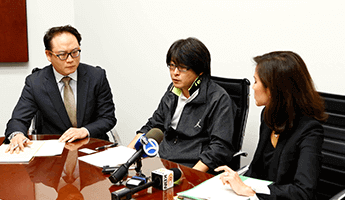State V. Buckner: Supreme Court Appeal Highlights the Problem of Judicial Shortages
At first glance, the Buckner case seems your run-of-the-mill criminal case. James Buckner was convicted in 2012 of 2nd degree armed robbery and assault, and was subsequently sentenced to nine years in prison. Buckner now seeks a new trial because the original trial judge was 73 years old.
Currently, the New Jersey Constitution states that judges “shall be retired” upon reaching 70 years. However, a 1973 recall statute passed by the state legislature permits the recall of retired judges back to the bench, even after they pass the mandatory retirement age of 70. Buckner filed his appeal to challenge the constitutionality of the recall statute.
Buckner’s appeal was heard by a 3-judge panel of the Appellate Division, who disagreed as to the recall statute’s constitutionality. Judge Jonathan N. Harris wrote a dissenting opinion in which he viewed the recall statute as an intrusion on the usual constitutional process of appointing new judges. The case is now pending before the New Jersey Supreme Court.
Buckner’s appeal and Judge Harris’ dissent puts the spotlight squarely on a broader institutional issue: the shortage of judges in New Jersey. Under the constitutional process, new judges are nominated by the governor and confirmed by the state Senate. Currently, there are an unprecedented 52 vacancies in New Jersey, many in the densely-populated counties of Bergen and Essex. Unfortunately, the appointment process is plagued by partisan squabbling and back-door political maneuvering which results in very few vacancies being filled.
To counter this record shortage, the recall statute has been widely used by court officials to recruit retired judges back to the bench. Using the recall statute has turned out to be a much easier undertaking than going through the constitutional appointment process. Nonetheless, problems associated with the shortage continue to persist. In Bergen County the caseload has become so backlogged that Assignment Judge Peter E. Doyne has taken the unprecedented step of postponing all civil and family court trials expected to last more than two weeks. This move was intended to free up civil and family judges to help out with the staggering criminal caseload.
Due to Buckner’s appeal, even the temporary remedy of appointing retired judges back to the bench is in jeopardy, exacerbating an already dire situation. The New Jersey State Bar Association, the state’s largest attorney group, has joined those calling on Governor Christie and legislators to defuse the “crisis” caused by the vacancies. In Bergen County, it is not uncommon for cases to be called for trial, only to be adjourned due to the unavailability of judges for trial. Summing up this shortage issue, the presiding judge made a comment on the record in a recent trial call, stating that he hoped the other two branches of government would get their act together and appoint new judges.
At Jae Lee Law, we always take a case with the intention and possibility of going to trial. We are nationally certified trial lawyers.Contact the Fort Lee Litigation Attorneys today or by telephone at 201 346-3800 to speak with an experienced Certified Trial Attorney. Free Consultation, and we don’t get paid until you do.



















